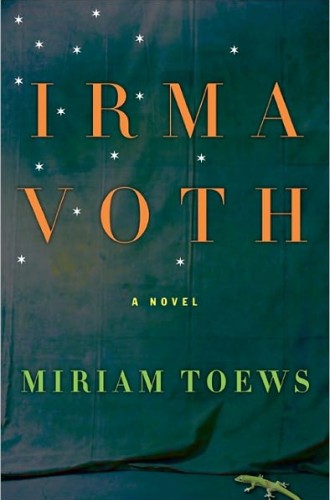Irma Voth, by Miriam Toews
Many, many things happen in Miriam Toews's slim new novel—drug dealing, a shotgun wedding, filmmaking, filicide, teenagers running away, political protests—and all of them happen in a year of the life of Irma Voth, a 19-year-old Mennonite living in Mexico.
The Voth family, headed by a bullishly strict father, live in Manitoba until the death of Irma's older sister prompts their move to an isolated Mennonite community in the Chihuahua desert. The isolation isn't sufficient, however, to prevent Irma from meeting and marrying the delinquent and forgettable Jorge. Irma's father disapproves of the marriage. He stops speaking to Irma, but he also insists that Jorge and Irma live in the house next door and continue to work on the family farm.
Jorge seems to regret almost immediately the situation he's gotten into and spends the bulk of his time driving to Mexico City in pursuit of disreputable business ends. Irma, estranged from her father and her community and largely abandoned by her husband, at first spends the bulk of her time alone with her wry observations. Her life, already full of regret and broken relationships, has made her cynical and quite funny. This is how she talks about an aunt and uncle who left the community, to her father's horror:





